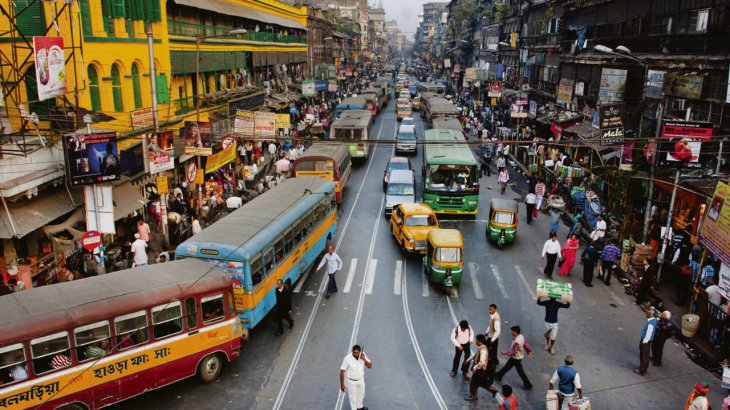IoT Businesses In India Have To Suffer The Rise Of Cyberattacks
Sundar Pichai - Oct 04, 2019

In the previous quarter, the IoT businesses in India registered a 22% rise, recording more than 33,000 high-grade attacks.
- Delhi Is The World’s Most Polluted Capital City For Three Years In A Row
- Indian Farmers Install High-Tech, Night-Vision CCTV Cameras To Protect Themselves
- Looking For The Best Electric Bike In India 2021? Take A Look At These
India has been ranked among the top target countries for cyberattacks in the last two consecutive quarters. Particularly in Q2 this year, the number of cyberattacks targeting the Internet of Things (IoT) businesses in India registered a 22% rise, recording thousands of high-grade incidences. Besides the scale of the attacks, the report also outlines the key sectors for cyber threats, the top cities most attacked, and the most used methods for malicious software.

Major Findings
Specifically, there have been 33,450 high-grade attacks in which 500 are highly sophisticated cases. Such sophisticated malware targeted critical infrastructure projects such as smart cities, with the increasing deployment of reconnaissance, a type of attack engaging in gathering information about vulnerabilities.

As said, smart cities are among the top sectors at risk of cyberattacks, followed by financial services and transportation infrastructure. These attacks occur most frequently in tier-I cities including Mumbai, Bangalore, and New Delhi. Subex claims they have conducted an investigation in over 15 cities across India before coming into the conclusion.

In terms of attack models, the probe has detected a whopping 2,550 unique types of malware prevailing in the nation. Modular and military-grade cases are on the rise although they usually require large budgets and a group of specialist hackers to conduct. Subex says the number of attacks aimed at geopolitics will soon become the trend.
The Upcoming Trend Towards Cyber Crimes In India

The increasing sophistication of cyber-attacks reported in the study indicates a larger trend that is widely spreading in India. Hackers now tend to become more patient as long as being able to steal crucial data. Instead of immediately carrying out the attack, they keep their footprint under detection software, waiting for the thresholds being breached, and easily achieve the targets.
Featured Stories

How To - Mar 04, 2026
Getting Started with AI: A Newbie's Simple Guide

ICT News - Mar 03, 2026
Budget Entry-Level PCs Under $500 to Vanish by 2028 Due to Memory Price Surge

ICT News - Mar 02, 2026
IDC Report Predicts Surging Smartphone Prices Due to Global RAM Shortage

ICT News - Mar 01, 2026
Samsung Links Galaxy S26 Price Hikes to AI Memory Supply Issues

ICT News - Feb 28, 2026
Anthropic Blacklisted by US Department of War: Trump Orders Federal Ban Over AI...

ICT News - Feb 26, 2026
AI Models Frequently Resort to Nuclear Escalation in Simulated Crises, Study...

ICT News - Feb 23, 2026
It's Over for Xbox: Asha Sharma Takes Over to Ruin Microsoft Gaming with AI

ICT News - Feb 22, 2026
Which AI Model Excels at Which Task in 2026: A Comprehensive Guide

ICT News - Feb 21, 2026
AI Coding Agent Causes Major AWS Outage at Amazon

ICT News - Feb 20, 2026
Tech Leaders Question AI Agents' Value: Human Labor Remains More Affordable
Read more

ICT News- Mar 03, 2026
Budget Entry-Level PCs Under $500 to Vanish by 2028 Due to Memory Price Surge
The era of the sub-$500 PC appears to be ending.

How To- Mar 04, 2026
Getting Started with AI: A Newbie's Simple Guide
Are you curious about artificial intelligence but not sure where to begin? You are not alone.
Comments
Sort by Newest | Popular